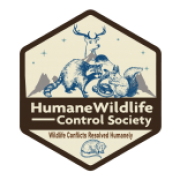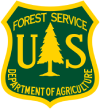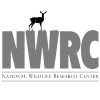Humane Wildlife Control in Port St. Lucie, FL
The Humane Wildlife Control Society recommends non-invasive solutions to resolve human-wildlife conflicts. This includes:
Determining if the issue needs to be addressed at all
Opting for preventative measures first
Opting for wildlife exclusion as opposed to trapping
If trapping is the only way to solve the problem do so humanely
The Humane Wildlife Control Society screens candidates prior to recommendation. Our process requires any company we recommend to meet the following criteria:
Is properly licensed in Florida for wildlife control
Carries appropriate business licenses and insurance
Complies with all Florida laws and regulations for wildlife control
Adheres to the humane principles listed above.
In Port St. Lucie, Florida we recommend Humane Wildlife Removal Port St. Lucie for professional wildlife control services. This is a private company that charges for their services.
Contact Information:
Port St. Lucie Wildlife Removal
772-266-7170
If you have any wildlife issues that can be handled by the state government agency for free, the Florida Wildlife Commission can help.
State Contact Information: 888-404-3922
The State Department of Agriculture may also be able to address your wildlife problem for no charge.
USDA Contact Information: (800) 435-7352
Wildlife Management Guide: Port St. Lucie, Florida Introduction Regulatory Framework Florida Fish and Wildlife Conservation Commission (FWC) regulations. Endangered Species Act (ESA) for federally protected species. Local municipal ordinances addressing land use, nuisance species, and protected habitats. Residents should report any violations of wildlife protection laws to the FWC or local authorities. Common Wildlife Species and Management Practices Alligators Alligators are common in lakes, canals, and retention ponds. Do not feed or approach alligators. Report nuisance alligators (over four feet and posing a threat) to the FWC’s Nuisance Alligator Hotline at 866-FWC-GATOR. Armadillos, Raccoons, and Opossums Avoid leaving pet food or garbage outside overnight. Seal entry points to homes and outbuildings. Contact licensed wildlife removal professionals for humane relocation if necessary. Birds and Raptors Many bird species, including osprey and bald eagles, are protected under federal law. Do not disturb nesting sites or handle injured birds without proper authorization. Report injured birds to local wildlife rehabilitation centers. Invasive Species (Iguanas, Burmese Pythons, and Feral Hogs) Non-native species can disrupt local ecosystems and should not be released into the wild. Landowners may humanely remove or hire professionals to remove invasive species. Report sightings of large invasive reptiles to the FWC. Sea Turtles and Marine Life Port St. Lucie’s beaches serve as nesting sites for sea turtles from March to October. Keep beaches clean, reduce artificial lighting, and avoid disturbing nesting areas. Report injured or stranded marine life to the FWC’s Wildlife Alert Hotline. Coexisting with Wildlife Secure trash bins to prevent attracting wildlife. Landscape with native plants to support local ecosystems. Use wildlife deterrents when necessary, such as fencing or motion-activated lights. Educate the community about responsible wildlife interaction. Emergency Contacts Florida Fish and Wildlife Conservation Commission (FWC): 888-404-3922 St. Lucie County Animal Control: (772) 462-8120 Local Wildlife Rehabilitation Centers: Contact for injured or orphaned wildlife assistance. Conclusion
Port St. Lucie, Florida, is home to a diverse range of wildlife, including native mammals, reptiles, birds, and aquatic species. Proper wildlife management is essential to maintain ecological balance, protect residents, and ensure the humane treatment of animals. This guide provides best practices for residents, businesses, and local authorities to coexist with wildlife responsibly.
Wildlife management in Port St. Lucie is governed by state and federal laws, including:
Responsible wildlife management ensures the safety of both residents and animals while preserving Port St. Lucie’s natural heritage. By following local regulations and best practices, the community can maintain a harmonious balance between human development and native wildlife.







